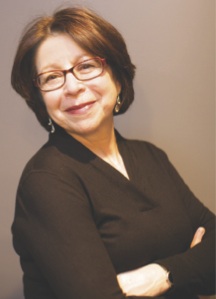
How do we measure change?
Glass half empty. Some rabbis who control Jewish rabbinical courts say, with no concern for women in limbo, that change in divorce law must come “slowly.” And the Women of the Wall, praying there on the first day of the Hebrew month of Av, were pelted with eggs, and more.
And yet…the first class of Maharats graduated; these Orthodox women trained as clergy are recognized as having authority to teach, lead, and interpret texts. Women deciding Jewish law? Unambivalently, we can cheer this opportunity and honor the male and female thinkers and teachers who’ve made this dream a reality. All three of the women graduates will be employed in rabbinical roles, though the graduates will be called not rabbi or “Rabba”—the female form of the noun—but MaHaRaT, an acronym for being learned in Torah. It’s possible that with women becoming religious decision-makers in the Modern Orthodox world, they will help move Jewish law toward justice on the agunah issue. Glass half full.
Back to smoking, an unlikely but nonetheless useful marker for other changes. From the days when a lit cigarette was an accessory of elegance we’ve moved on to the New Yorker cartoon showing office workers in business suits sitting on a horizontal construction beam hanging over a cityscape. It’s the last place they can smoke. The approval rating for smoking has tanked.
So…how do we measure these changes—by what has improved, in law and in attitude, or by our disappointments that there’s still so much to be rectified?
In some matters of women’s rights, change has been maddeningly slow. My shortlist includes reproductive justice. The backward motion on abortion rights in many state legislatures terrifies me. In a worsening political climate for women, some states argue for criminalizing abortion after 12 weeks! The state of Mississippi trying to deny abortions to any woman more than six weeks into a pregnancy!
And money. Even if they did have access, poor women often can’t afford to pay for abortions. Or mammograms. All women are still, by every estimate, earning less than men comparably trained. Costs for prenatal care and child care are soaring for all. Single mothers in particular are struggling to feed their families. And wealthy women? Barbara Dobkin, a leading Jewish feminist activist and energetic world-changer, challenged me over breakfast this morning: “Tell me, where are the women who should be funding women’s projects?” With a few notable exceptions, like Dobkin herself and other staunch supporters of feminist causes like Lilith, they are invisible.
Are we being unrealistic about wanting women’s lives to improve during their lifetimes? Are our standards too high as we complain that perfection is not within our grasp today?
One of my daughters, when she was an adolescent, used to tell me that I was quick to notice the corner of her bedroom that was still untidy, and chary with praise for the rest of the room she had put in order. Maybe I really am the cranky, unappreciative person she then thought me to be. But when we express our happiness unreservedly for the real gains, including the gloriously pioneering Maharats, we’ve also got to notice the corners—very big corners now—where the mess is still there.



